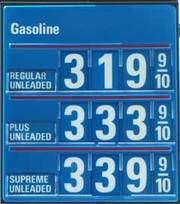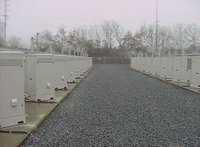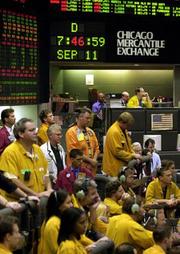
Markets work based on incentives, the most powerful of which is money.
Gas costs $3/gallon in California today because all the players in that market have an incentive to make it expensive. OPEC countries know they can make more from each barrel by agreeing to limit production. Oil companies know they can increase their refining profits by limiting the number of refineries.
The idea that governments can’t or shouldn’t be involved in setting market incentives is specious. Governments do this all the time. If others do it and you demur it’s unilateral financial disarmament. This is what the U.S. has been engaged in regarding energy, and the results should not surprise.
At the heart of The War Against Oil is creating incentives that will cause markets to shift dramatically, from hydrocarbons to hydrogen.
The key to making this happen is electricity.
Right now we can’t imagine things running on hydrogen because
electricity supplies are stretched tight. During many summer days much
of the U.S. electrical grid is prone to breakdowns already, as
consumers demand more electricity than the grid can produce.
Thus every plan I see for "alternative" energy is predicated upon producing electricity for the grid. Ormat Technologies
contracts with western utilities to harvest underground heat in the
form of steam and turn that directly into electricity for delivery to
the grid. (They call it "heat mining" but the process is more like oil drilling.) It estimates that just 10% of American electrical use will
be supplied in this way over the next decade.
In order to consider a switch to hydrogen cars, we need so much
electricity that suppliers will be looking hard for ways to dump it, to
essentially make it portable. The way you make electricity portable is
by using it to make hydrogen, then porting that in tanks, tankers, or
through pipelines, to consumers with hydrogen-fueled vehicles.
Getting to cars running on fuel cells, then, is a three step process:
- Create an over-supply of electricity without hydrocarbons.
- Create an after-market for electricity in the form of hydrogen.
- Get the price of that hydrogen low enough that there’s an incentive to produce hydrogen cars.
All this will require intense manipulation of the market, new
incentives to produce some things and disincentives to produce other
things.
Right now those who don’t want to change are trying to manipulate the
"alternative fuels" debate, first by using that term in reference to
things like coal, oil shale, nuclear power and ethanol, second by claiming that hydrogen is a "hoax" or technically impossible. Three of the "alternative fuels" power
sources use hydrocarbons, and the fourth, in the form of fission, is
simply impractical. (Fusion, which turns hydrogen into helium, is under
development in France as well as the U.S. and is another matter.)
I believe the key to making this transfer is through a "price floor."
You tell energy users that energy will cost, say, the equivalent of
$50/barrel oil, and any hydrocarbons which come to market under that
price will be taxed to reach that target. This guarantees renewable
producers a market for their energy. Without such an assurance you
won’t get the long-term investment needed, because oil prices are
subject to easy manipulation — as we’ve seen.
The purpose of the price floor is not to handicap U.S. consumers or manufacturers, but to create market incentives for renewable energy
producers. In time, you’re going to hit the limits of demand and electricity producers will need a way to "store" their energy for
later use. Like hydrogen.
That’s when you start creating a hydrogen market. Liquid hydrogen,
cooled to near absolute zero, is the rocket fuel of choice, but that’s
not a price-sensitive market. Hydrogen is also used to fuel some back-up power.
(Fuel cell picture from Fuel Cells Today.) What that market needs is demand in order to fuel supply once the
traditional electrical demand, subject to the price floor, is exhausted.
Our success in winning The War Against Oil will be determined by two
factors, the price of hydrogen in the face of rising demand, and the fuel used to create that
hydrogen. It will be an act of long-term political will to maintain
demand for non-hydrocarbon hydrogen. Raising supplies will naturally
create a more sophisticated distribution market than what we have at
present, which is mostly based on gas cylinders and tanks.
In this the Bush Administration is, as usual, going about it all backwards. The so-called H-Prize would give money for hydrogen supply breakthroughs, while a better prize would be demand for the product.
Not all market incentives are financial. They can also be political.
Public service is a political incentive. Patriotism is another.
Political power must be placed at the service of driving up hydrogen
supply while reducing demand for hydrocarbons. This will mean long-term
market manipulation, but the result will be an entirely new industry,
and an entirely new way of bringing energy to market, one that is not
subject to control by other countries, and one which will guarantee
your grandchildren something approaching the life you’ve enjoyed.
The political will to create, and maintain incentives for transforming
our energy market, has both liberal and conservative motives at its
base. We should, by the end of next year, have a political consensus on
behalf of such a change. Maintaining that consensus through the
resulting boom will be hard work, and in the case of "alternative
fuels" we’re already seeing just how difficult that will be.
It’s in staying strong against that pressure that I am calling for a
War Against Oil, to concentrate every American’s mind on the ultimate
goal, and to prepare us for the long-term sacrifices needed to reach
the goal. Winning the War Against Oil will starve the terrorists, it
will wither adversaries among the oil-producers, and it will transform
our competition with China into true two-way trade.
But we can’t win unless we first start, and starting requires that we embrace the idea of changing market incentives.













Whoa, you claim fission is impractical and then in the next breath bring up fusion? Modern, safe, and efficient breeder fission reactors are being deployed right now in many developed nations (The US is the primary laggard here). Fusion as a practical power source is at least as far away as hydrogen fuel cells and likely much farther. Now if you say nuclear is POLITICALLY impractical, I’m with you. However, if we are talking about pure technology, it is actually by far your best bet to generate that surfeit of electricity you want for hydrogen generation. Anyway, what makes you think the anti-nuclear luddites would like fusion better than fission? It still involves radioactive fuel (tritium) and the whole thing seems a bit too close to a potential H-bomb in the backyard to the ignoratti.
Whoa, you claim fission is impractical and then in the next breath bring up fusion? Modern, safe, and efficient breeder fission reactors are being deployed right now in many developed nations (The US is the primary laggard here). Fusion as a practical power source is at least as far away as hydrogen fuel cells and likely much farther. Now if you say nuclear is POLITICALLY impractical, I’m with you. However, if we are talking about pure technology, it is actually by far your best bet to generate that surfeit of electricity you want for hydrogen generation. Anyway, what makes you think the anti-nuclear luddites would like fusion better than fission? It still involves radioactive fuel (tritium) and the whole thing seems a bit too close to a potential H-bomb in the backyard to the ignoratti.
Hi, Dana. To start, I agree with much of what you’re saying (though I would like you to provide some support for your opinion as to why the pebble-bed reactors are impractical). Hydrogen is an important route to continuing our energy supply. Other alternatives are also important. I don’t think it’s reasonable to put all of our energy “eggs” in any one basket.
When you comment on the price of gas in California, you’re correct in saying that all the players in that market have an incentive to make it expensive. But you leave out a MAJOR player; that being the government. Taxes are the single major component of fuel prices after the cost of the crude. And California is one of the states with the highest taxes attached to fuel. No amount of “fair pricing” by suppliers will make the gasoline there cheap:
http://www.californiagasprices.com/tax_info.aspx
IOW, in many states, such as California, we have a substantial floor for fuel prices already. What you’re proposing is to raise that.
The trick is to set that floor to provide incentive while not crashing the economy. In some states, such as California or New York, that floor may already be only pennies away. Others may have more leeway (I purchased gas this morning for $2.29/gallon).
In the long run, the “War Against Oil” may do as you describe. The short term results are likely to be far different, though. The chances are vanishingly small that it would starve the terrorists, or anybody else, for that matter. For simplicity, imagine that we obtain the breakthrough we all hope for and the U.S.A. stopped buying foreign oil entirely, in the very short term. The actual result would be a precipitous drop in the price of worldwide oil, and the increasing resentment of cash-rich OPEC members at the loss of revenue. Funding for terrorism may actually increase. Incentives to terrorism would definitely increase.
The (now cheap) oil would be bought by other countries, including Third World countries that could not previously afford to industrialize. Demand restored, the price would stabilize, most likely at a lower level.
What happens then is really anybody’s guess. (Political future is notoriously unpredictable. Anyone who tells you they can predict it with accuracy is a liar or a fool. For instance, no one foresaw in 1941 that today Japan would be an economic powerhouse and staunch ally of the U.S.A.) It’s possible that more trade among an industrialized Third World may reduce trade with the U.S. with calamitous economic results for the U.S. Alternatively, the economic pie could just get bigger. By the time the oil runs out, other countries will have been able to afford the alternative fuel technologies that we develop. Or something entirely different could happen. We’ll just have to see.
One other quick observation: innovation can’t be legislated, It may be “1% inspiration and 99% perspiration”, but without inspiration you’re still 1% short of an invention. That’s what the H-prize is for. For large companies, the incentive is sales. But this market is too huge for inventive — but financially limited — individuals to tap. The H-prize presents additional incentive to encourage innovation from sources that may not otherwise participate in the search for a solution. I wouldn’t call this “backwards” at all. It’s covering all the bases, and I’m encouraged to see that they thought of it. The fact that you didn’t consider this should indicate to you as well that the government is capable of surprising you now and then with a good idea. This week, consider yourself as the one getting “A Clue”.
Hi, Dana. To start, I agree with much of what you’re saying (though I would like you to provide some support for your opinion as to why the pebble-bed reactors are impractical). Hydrogen is an important route to continuing our energy supply. Other alternatives are also important. I don’t think it’s reasonable to put all of our energy “eggs” in any one basket.
When you comment on the price of gas in California, you’re correct in saying that all the players in that market have an incentive to make it expensive. But you leave out a MAJOR player; that being the government. Taxes are the single major component of fuel prices after the cost of the crude. And California is one of the states with the highest taxes attached to fuel. No amount of “fair pricing” by suppliers will make the gasoline there cheap:
http://www.californiagasprices.com/tax_info.aspx
IOW, in many states, such as California, we have a substantial floor for fuel prices already. What you’re proposing is to raise that.
The trick is to set that floor to provide incentive while not crashing the economy. In some states, such as California or New York, that floor may already be only pennies away. Others may have more leeway (I purchased gas this morning for $2.29/gallon).
In the long run, the “War Against Oil” may do as you describe. The short term results are likely to be far different, though. The chances are vanishingly small that it would starve the terrorists, or anybody else, for that matter. For simplicity, imagine that we obtain the breakthrough we all hope for and the U.S.A. stopped buying foreign oil entirely, in the very short term. The actual result would be a precipitous drop in the price of worldwide oil, and the increasing resentment of cash-rich OPEC members at the loss of revenue. Funding for terrorism may actually increase. Incentives to terrorism would definitely increase.
The (now cheap) oil would be bought by other countries, including Third World countries that could not previously afford to industrialize. Demand restored, the price would stabilize, most likely at a lower level.
What happens then is really anybody’s guess. (Political future is notoriously unpredictable. Anyone who tells you they can predict it with accuracy is a liar or a fool. For instance, no one foresaw in 1941 that today Japan would be an economic powerhouse and staunch ally of the U.S.A.) It’s possible that more trade among an industrialized Third World may reduce trade with the U.S. with calamitous economic results for the U.S. Alternatively, the economic pie could just get bigger. By the time the oil runs out, other countries will have been able to afford the alternative fuel technologies that we develop. Or something entirely different could happen. We’ll just have to see.
One other quick observation: innovation can’t be legislated, It may be “1% inspiration and 99% perspiration”, but without inspiration you’re still 1% short of an invention. That’s what the H-prize is for. For large companies, the incentive is sales. But this market is too huge for inventive — but financially limited — individuals to tap. The H-prize presents additional incentive to encourage innovation from sources that may not otherwise participate in the search for a solution. I wouldn’t call this “backwards” at all. It’s covering all the bases, and I’m encouraged to see that they thought of it. The fact that you didn’t consider this should indicate to you as well that the government is capable of surprising you now and then with a good idea. This week, consider yourself as the one getting “A Clue”.
First off, energy is a substitute for labor, and its consumption generally makes our lives easier. We are nowhere near a point of diminishing returns either. And as the developing world begins to use more energy, it gets richer too. The US imposing a price floor or setting a higher tax on oil (or hydrocarbons) simply makes energy more expensive for us and less expensive for India, China, etc. So you’re sure to get Lou Dobbs on board with that.
There are externalities to oil. Environmentally, we’ve cleaned up smog, acid rain, and other local/regional environmental problems over 30 years. In SoCal, we’re at a point of diminishing returns relative to the number of people and natural local climate (inversion layer, etc.). So about the only issue left is AGW supposedly caused by CO2. Jury is still out on every level of the debate, from the accuracy of the models to whether a warmer planet might be desirable to whether a government imposed command and control system could actually fix the problem.
The other externality is the whole Middle East Islamofascist terror thing. Even with our government dealing quite inefficiently (but generally effectively since 9/11 if you count attacks on our homeland), it’s allowed us to continue to use pretty cheap energy and maintain our lifestyles and enjoy some pretty amazing choices. For example, I’m pretty confident that if some ecosnob in a Prius wants to initiate a collision with my SUV, I’ll probably get the better of it and still be able to lug energy inefficient but visually pleasing lighting from Home Depot between visits to the body shop.
About half of America is as obnoxiously arrogant (or more!) about energy use as I am, just by political affiliation and what Karl Rove tells us through our churches. [note: irony]. But all you have to do is sit down with liberals who focus on the price of gas at the pump and have all sorts of theories about how the oil companies are screwing the middle class and all that, and you’ll realize that they’ll be the biggest resistors to new energy taxes, regardless of what their favorite politician tells them.
Perhaps if the government is going to get into manipulating energy markets “seriously”, instead of picking a single winner (hydrogen in your vision), it ought to promote diversity of options. For example, plug-in hybrids are DOA because of steep “progressive” electricity pricing mandated by state PUCs. You used to think competition was important.
First off, energy is a substitute for labor, and its consumption generally makes our lives easier. We are nowhere near a point of diminishing returns either. And as the developing world begins to use more energy, it gets richer too. The US imposing a price floor or setting a higher tax on oil (or hydrocarbons) simply makes energy more expensive for us and less expensive for India, China, etc. So you’re sure to get Lou Dobbs on board with that.
There are externalities to oil. Environmentally, we’ve cleaned up smog, acid rain, and other local/regional environmental problems over 30 years. In SoCal, we’re at a point of diminishing returns relative to the number of people and natural local climate (inversion layer, etc.). So about the only issue left is AGW supposedly caused by CO2. Jury is still out on every level of the debate, from the accuracy of the models to whether a warmer planet might be desirable to whether a government imposed command and control system could actually fix the problem.
The other externality is the whole Middle East Islamofascist terror thing. Even with our government dealing quite inefficiently (but generally effectively since 9/11 if you count attacks on our homeland), it’s allowed us to continue to use pretty cheap energy and maintain our lifestyles and enjoy some pretty amazing choices. For example, I’m pretty confident that if some ecosnob in a Prius wants to initiate a collision with my SUV, I’ll probably get the better of it and still be able to lug energy inefficient but visually pleasing lighting from Home Depot between visits to the body shop.
About half of America is as obnoxiously arrogant (or more!) about energy use as I am, just by political affiliation and what Karl Rove tells us through our churches. [note: irony]. But all you have to do is sit down with liberals who focus on the price of gas at the pump and have all sorts of theories about how the oil companies are screwing the middle class and all that, and you’ll realize that they’ll be the biggest resistors to new energy taxes, regardless of what their favorite politician tells them.
Perhaps if the government is going to get into manipulating energy markets “seriously”, instead of picking a single winner (hydrogen in your vision), it ought to promote diversity of options. For example, plug-in hybrids are DOA because of steep “progressive” electricity pricing mandated by state PUCs. You used to think competition was important.